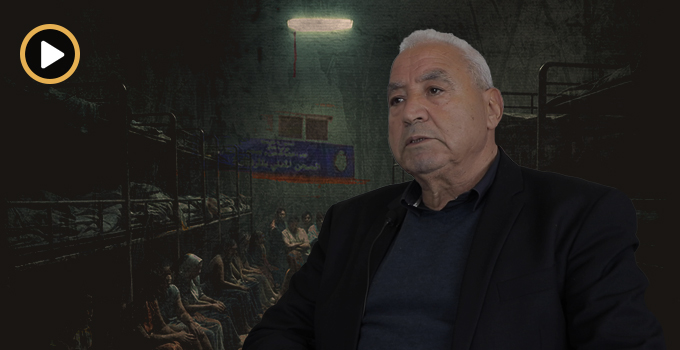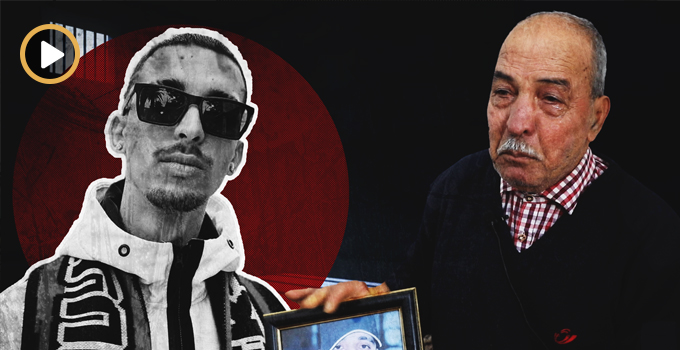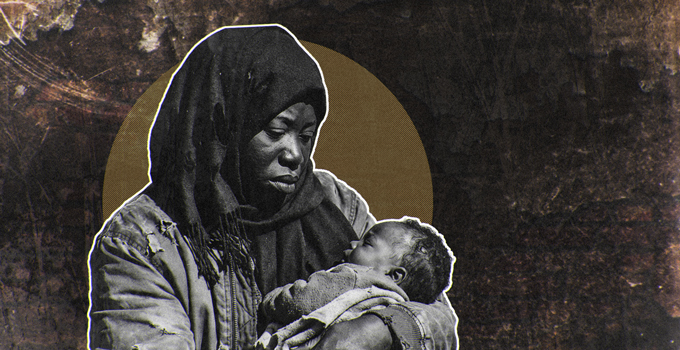 Every once in a while you run across people whose courage makes you ask of yourself if you would act equally heroic should you find yourself in their shoes. That certainly was the question I kept asking myself during my recent trip to Tunisia.
Every once in a while you run across people whose courage makes you ask of yourself if you would act equally heroic should you find yourself in their shoes. That certainly was the question I kept asking myself during my recent trip to Tunisia.
I was there as part of a two person delegation from the Committee to Protect Journalists (CPJ), a non-profit organization for which I am a board member.
CPJ advocates for the freedom of expression wherever journalists are threatened, harassed, imprisoned or otherwise prevented from doing their jobs. My traveling companion on the trip, Joel Campagna, is a CPJ staff member whose expertise in press-freedom abuses in the Middle East (not to mention his fluency in Arabic) make him a known and respected press advocate among journalists in the Arab world.
Arriving at the Tunis-Carthage airport is a study in contrasts. On the one hand, efficiency and modernity are in full display: You could just as easily be in an airport somewhere in Europe, especially since all the announcements and signage are in French, and the duty-free shops are filled with over-priced French and Italian luxury items. But that’s where the similarities end.
A journalist not doing “journalism”
In the passport-control area run by the police, I was kept waiting. On my official entry document, I perhaps stupidly, but at least truthfully, listed “journalism/news executive” as my profession. A uniformed bureaucrat who looked like he hadn’t cracked a smile in 15 years asked me questions in rapid succession. What business do you have in Tunisia? Why are you traveling alone? Who is this colleague you say you’re joining up with and where is he right now? What meetings do you have planned? Where will you be staying? Do you have permission and the requisite paperwork to come here in a journalistic capacity? What news organization are you from?
I was there with CPJ, not NBC News, so how to explain that I was there as a journalist, but not to do “journalism”? I wasn’t about to say that I was there to show solidarity with all Tunisian journalists who can’t freely report the news; or that we sought to obtain the release of a Tunisian reporter who has been languishing in prison because he dared to criticize the ruling government. I ended up saying something bland about participating in some conferences to discuss international journalism. By then my interrogator got bored and grumpily stamped my passport.
From the general hush of the passport control area, I was immediately thrust into the chaotic arrivals waiting area filled with the cacophony of hundreds of Tunisians waiting for relatives returning home. The call to prayer emanating from a nearby mosque competed with the honking horns, yelling taxi drivers, and Air France and Alitalia announcements. I knew I wasn’t in Kansas anymore.
Boom time, with caveats
As a nation, Tunisia has so much promise. In many ways, this beautiful Mediterranean and Sahara Desert country stands out for the West as the teacher’s pet in the Arab world.
Its economy has been booming. Foreign investment has contributed to an admirable 5 to 6 percent growth rate. Construction sites are more common than mosques. There’s a vibrant tourism industry, relatively modern transportation, health care, and secular education systems. Significant progress has been made for women’s rights. There’s an effective military and a large middle class – which is of course fundamental to the growth of democracy. And then there’s the ultimate polished apple: The Tunisian government cooperates with the West in the fight against terrorism and even dictates what’s allowed to be said in sermons at the mosques.
While the U.S. and Europe have heaped praise on Tunisia and have encouraged it to continue to act as a bulwark against Islamist extremism, they have turned a blind eye (or at least a severely myopic one) to human rights abuses, most notably the freedom of expression.
Journalists in jeopardy
The regime of President Zine El Abidine Ben Ali, for all the progress it has made elsewhere, has jailed more journalists than any other Arab country since 2001. And the situation is growing worse, especially as signs emerge of mounting unrest among those who are being left out of the growth benefits.
Ben Ali and his regime have in many ways gotten away with their bullying because they say it’s all part of the fight against terrorism. But how does jailing a reporter who has uncovered corruption in the highest places (including within Ben Ali’s family) help to fight terrorism?
“Opposition” newspapers are allowed to exist, but they cannot criticize Ben Ali and are severely constrained by small circulations and relentless government harassment. How is the war on terrorism served by shutting down the Internet connections of newspapers whose reporters believe it is their job to raise hard questions? Are we all safer when the Tunisian police remove from the newsstands magazines containing articles that detail police harassment of journalists and their families? Is it not a problem when those yearning for democratic freedoms in the Arab world feel the need to hide their opposition magazines behind government-supported newspapers when reading in a public place?
Is the Tunisian government made more secure by blocking press coverage of uprisings over severe unemployment and rising food prices in the least developed parts of the country? Even the most educated young people, including many we spoke with, complain they can’t get jobs because they don’t have the right connections at the top, or lack the palm-greasing money necessary to buy their way into a job.
The dissident reporters we spoke with are concerned about the swelling ranks of young, disaffected men drawn to Islamic fundamentalism and willing to go to Iraq as suicide bombers. We heard about this over and over again in all our meetings, but never would you be able to read about it in the Tunisian press.
Small steps
Months before out trip, CPJ corresponded with various government agencies and bureaucrats asking for high level meetings to discuss these issues, and in particular, the case of journalist Slim Boukhdir, who has been imprisoned on trumped up charges since November 2007, shortly after he wrote an article critical of the regime.
CPJ’s requests generally result in official meetings, even if they don’t always produce the desired results. But, Tunisia refused to grant us any such meeting, even with lower-level bureaucrats. They knew we were there, since we called and left messages every day. We were followed and monitored, but no one from the government bothered to reach out to us.
Nevertheless, we accomplished an important part of our mission. Though our efforts to visit Boukhdir in prison and obtain his release were frustrated, he did learn, through his wife and family, that we had made the two-hour trek to the prison on his behalf. While he has suffered harsh and unsanitary conditions that have resulted in scabies, his wife Dalinda told us his spirits have soared just knowing CPJ is focusing attention on his plight and that of other Tunisian journalists.
When I asked his wife if she thought Bouhkhdir would go back to journalism when he is finally released, Dalinda matter-of-factly responded of course he would, she would not want him to act otherwise.
Indeed, our fact-finding revealed that the more the government tries to silence the independent press, the more emboldened these journalists become. All of the journalists and human rights activists we talked with throughout the week told us how much our visit meant to them in their struggle for freedom of the press.
Even though they risk imprisonment; even though their newsrooms have old, beat up computers with frequent Internet outages and e-mail that is often mysteriously wiped out; even though they have to work several jobs to support their families; even though they are routinely harassed by officials and never know when they’ll be picked up by the police on spurious charges; and even though they see even bigger problems for Tunisians down the road – they keep on going.
Such dedication encourages their fellow Tunisian reporters to follow suit. Surely now that CPJ has conducted this mission, they reasoned, the West will be awakened, will put pressure on Ben Ali, and will actively promote freedom and democracy in a country so vital to our own self-interests. One can always hope.
By Cheryl Gould, NBC News Senior Vice President
From MSNBC World Blog




iThere are no comments
Add yours